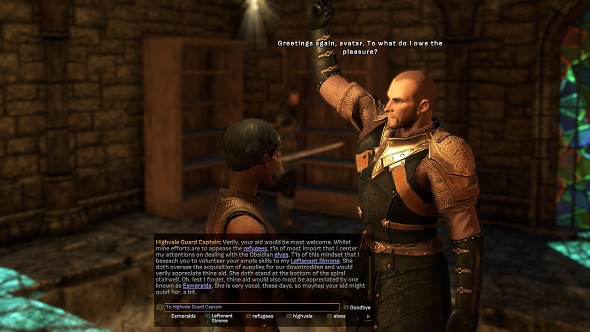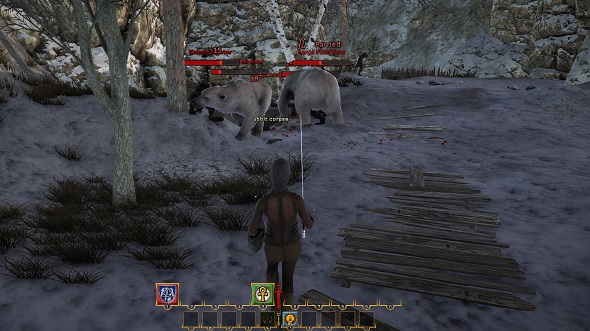“Don’t say tush,” Edmund Blackadder as soon as chastised Lord Percy within the eponymous BBC sitcom’s Tudor outing. “It’s only a short step from ‘tush’ to ‘hey nonny nonny,’ and then, I’m afraid, I shall have to call the police.”
If that regulation nonetheless stands, Richard Garriott and his workforce will probably be dealing with critical time for his or her work on Shroud of the Avatar. The crowdfunded RPG’s dialogue is affected by thous and hithers. Verily, it’s doing mine head in.
Shroud of the Avatar launches with a big bang – and a new dungeon.
Garriott’s lengthy, long-awaited return to the RPG style he helped form is one which straddles the ‘90s and the contemporary. Shroud of the Avatar is an Ultima game in everything but licence: the ‘Avatar’ within the sport’s title is your protagonist, simply because it was again then; ethical ideas like fact and braveness are a matter of frequent, express reference; and sure, the writing tends to creep into Fakespeare.

This method isn’t with out its charms. There is a stunning Narnian high quality to the intro, which has you actually fall down a wiki-hole of otherworldly runes, rising in one other world the place elves stalk the land and stars shoot continuously throughout the sky. The proven fact that builders Portalarium don’t see any situation with canonising the participant on the keyboard as a bespectacled man, nonetheless, suggests they may have fallen behind the curve of progress considerably.
As do a few of their design choices. A soar key that triggers not if you press it, however if you let go. Combat so hands-off it might probably comfortably be performed with a single hand. A dialog system that grants the choice of typing in key phrases. It all results in predictably hit-and-miss outcomes.
“I cannot comment on this,” a dying knight tells me as I try and comply with his final want.

Shortly afterwards, I watch the demise of a fearsome Obsidian Elf standing somewhat too near a burning cart. He fails to react when he catches on fireplace, reminding me of the eerily nonetheless protesters who’ve dedicated to the horror of self-immolation.
“The remainder of our folks will know what occurred right here,” he hisses as he succumbs to the flames. Honestly, it is likely to be much less embarrassing if we preserve this one to ourselves.
Garriott appears undecided about which legacy he’s following up – the simulation and single-player storytelling of Ultima VII, or the persistent on-line world of Ultima Online. The affect of the latter gives one in all Shroud of the Avatar’s few real highlights, nonetheless – the player-run hamlets scattered throughout its overworld.
This is the place the sport drops any pretence of gravity and turns into its vibrant greatest. In the city of Soryn Fields, a scorching air balloon is anchored subsequent to a 60-foot statue, whereas snowmen enhance the sunlit excessive road. The outlandish structure resembles one thing Garriott himself might need constructed on the top of his fortune. Prefab participant abodes, in the meantime, are significantly pretty – housing sword collections, steampunk safes, and sedentary guard canine.

Outside on the earth, against this, my most lively involvement with one other human being thus far has been ready for them to get out of a raise so I can attain my flooring. That, at the very least, appears like true simulation.
Shroud of the Avatar’s MMO trappings typically appear to battle with its grand storytelling ambitions, in a compromise video games like Star Wars: The Old Republic have dealt with much better. The minimal voice performing, as an example, is likely to be comprehensible in a non triple-A sport of this scale. But modern requirements for 3D RPGs make its absence jarring.
There is not any motive why a Garriott sport ought to really feel this outdated. The RPG style’s present darling, the chart-topping Divinity: Original Sin II, is closely influenced by the deep interactivity of Ultima VII. But Shroud of the Avatar appears extra prepossessed with poking at fond recollections of Ultima than updating its triumphs for 2018. Hey nonny no.
Source


